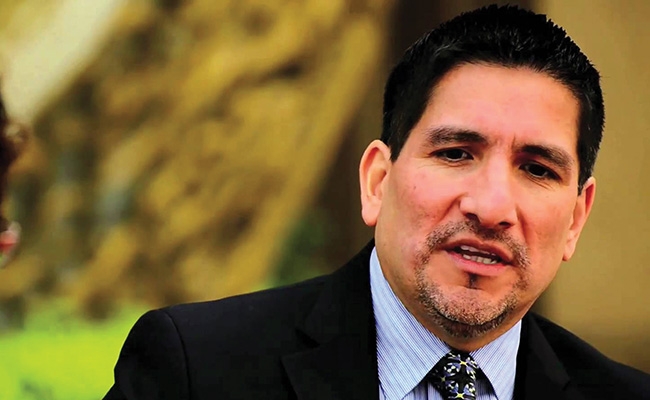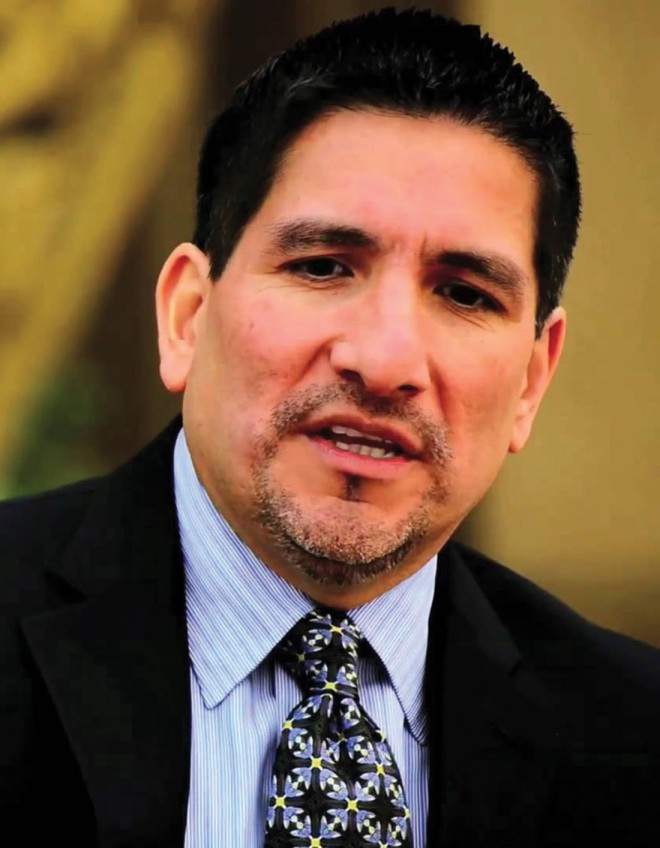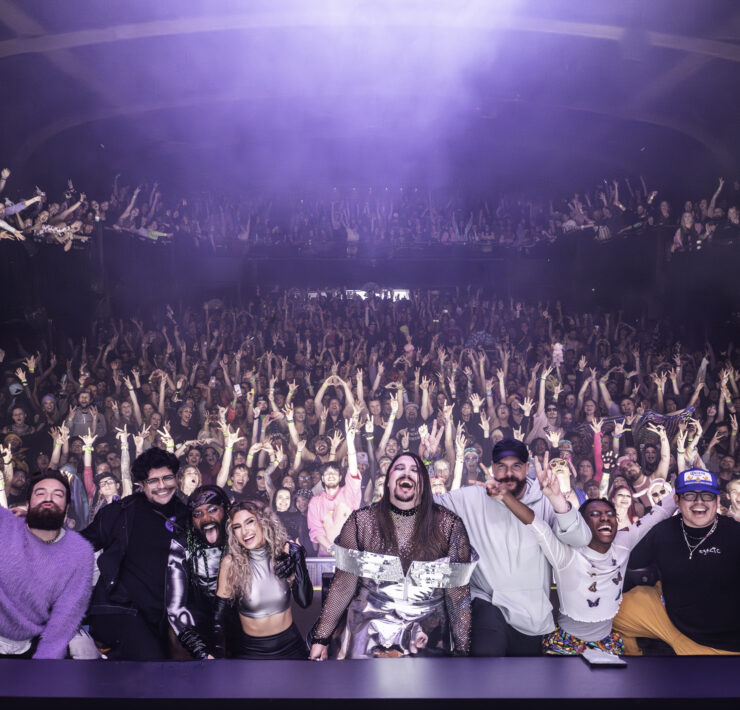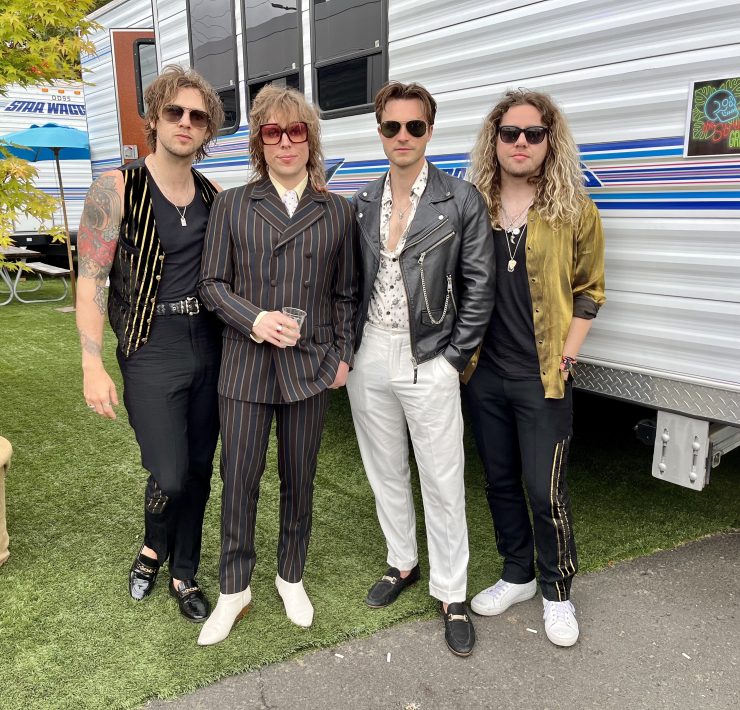INTERVIEW: IBM executive Tony Tenicela on company culture and the business case for diversity

 In January, Downtown Denver–Based software company ServiceSource launched the kickoff meeting of its brand new LGBT Employee Resource Group. Tony Tenicela, a global leader and business development executive focused on workplace diversity and LGBT markets at IBM, spoke at the meeting and shared an additional interview here.
In January, Downtown Denver–Based software company ServiceSource launched the kickoff meeting of its brand new LGBT Employee Resource Group. Tony Tenicela, a global leader and business development executive focused on workplace diversity and LGBT markets at IBM, spoke at the meeting and shared an additional interview here.
Tell us about your career path and what you do for IBM today.
Since I was a young boy I have viewed life through a multicultural lens. My parents exposed me to international travel throughout my childhood since my father was invited to share his pain management practices with medical communities around the world. I was exposed to the foods, languages and customs at a very young age and it really made me appreciate and value differences. It also motivated me to be very risk-taking after college and the first milestone of my career was when I joined Worldview Systems as one of the founding employees — a startup in San Francisco that developed the initial prototype for the Travelocity website back in the 90s. After that life-changing experience I went back to school and then joined IBM.
Today I serve as a global leader for a very unique organization in the marketplace that advises multinational corporations and local enterprises around the world on how to leverage diversity and human capital in order to improve workforce effectiveness, address the needs of employees, foster collaboration and stimulate innovation.
How do you define success and how important is it to achieve success?
Each of us has our own definition of success. It’s really about maximizing opportunity and embracing your passion during our short lifetime, but at the same time creating a home environment that is supportive, fulfilling, and loving. The work-life balance is really critical for anyone’s happiness and for anyone to really consider their life to be successful. From a career standpoint, I think taking risks and having mentors is incredibly important. I heavily rely on mentors for their advice and their support and their encouragement to really help me make the right decisions and guide me in this journey.
How do you integrate diversity into a company culture?
First it’s all about learning. I always recommend to our customers, not only leverage IBM’s best practices but also companies in your respective industries who have already started addressing diversity, to learn about their approach to diversity and start collecting best practices.
Number one is education. The second thing is really about executive sponsorship. Really in any corporate environment it’s always essential to have the commitment and the sponsorship of some key executives who understand the business case and the reason for promoting and addressing diversity. Identifying those executives early on is critical.
Third, it’s about encouraging and nurturing grassroots leaders at the employee level. All companies have passionate, passionate employees about diversity and it’s really important to embrace that and have management realize and appreciate that these leaders really want to work with them on addressing diversity. Then it’s all about formalizing the commitment through an equal opportunity policy letter, through the development of certain programs, and from the proceeding on to formalizing diversity.
What is your perspective on Employee Resource Groups?
ERGs help organize employees who share an affinity or are part of a particular community. They traditionally will encourage employees to work together to provide training and networking opportunities for employees who want to join. They also serve as an important driver for addressing the needs of those respective communities. They are able to provide recommendation on policy benefits, identify mentors, and also engage in a wide variety of activities ranging from social events where you can invite employees from that particular community to get to know each other, to support each other, and then also being exposed to other aspects of the organization by bringing in internal and external guest speakers.
What has transpired over the past few years is that ERGs also include a marketplace component. ERGs are not only serving to address the needs of their respective communities but also starting to contribute to the business by working to perhaps identify new decisionmakers in their respective communities, working with the sales and marketing teams to start cultivating those relationships, and leveraging those relationships in order to differentiate the company in
competitive situations.
What is the best piece of career advice you have received?
My father gave me some advice, ‘It was really important to find something you love and do it better than anyone else.’ I really took that to heart because it really helped me it inspired me to do the best I possibly can in the role that I’m taking on at any given point in my career. It’s really important to follow your heart and not be discouraged by failure. Always be open to risk-taking. The one consistent element of anyone’s career is really to just do what you love and do it to the best of your ability.
To hear the full interview on podcast, visit the Gay Ambition Blog.
What's Your Reaction?
Paul Collanton is the founder and producer of The Gay Ambition Blog. Paul writes for Out Front about business, entrepreneurs and the intersection of work, life and identity.










